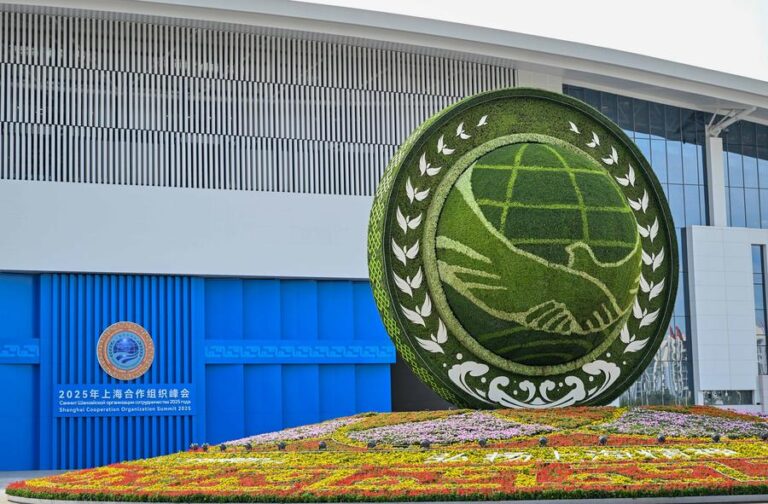The significance lies in turning ideals into results: reliable energy, resilient food systems, efficient transport and strong public health. At a time of uncertainty, these initiatives point toward inclusivity and practical problem-solving across borders.
by Erik Solheim
As the Shanghai Cooperation Organization (SCO) summit convened in Tianjin, I was traveling across Southeast Asia and southern India, working with partners in cities, governments and companies. Those exchanges reinforced a simple truth: stability in the region does not come from rhetoric or grandstanding, but from quietly managing differences and delivering practical results that improve people’s lives.
In Coimbatore, India, Electra EV produces battery packs for the country’s emerging electric transport revolution. The company is creating jobs, prosperity and driving technology forward. The cells for its batteries are made by CALB, a Chinese company headquartered in Changzhou, Jiangsu province. Despite ups and downs in bilateral ties, India-China trade and technology cooperation have endured. Today, both sides look ahead with optimism.
A few days later, in the Malaysian rainforest, I observed how Sarawak Energy combines hydropower with floating solar to power households across the state. The projects involve Chinese construction companies and solar panel makers. Again, the message was clear: getting the geopolitics right is key to achieving tangible development outcomes.
The Tianjin summit underscored this approach. Leadership is not about dismantling the global order, but about building one that is representative, resilient and effective. What began less than three decades ago as the “Shanghai Five” has grown into an organization with 10 member states and many other partners spanning Asia, Europe and Africa. The SCO does not aim to rival the United Nations but to supplement multilateralism — upholding the UN Charter, respecting international law and rejecting Cold War mentality.
Over the years, I have learned that genuine leadership means renovating the house, not tearing it down. The test of any multilateral platform lies not in declarations but in whether it delivers benefits on the ground.
This pragmatic focus is also at the heart of Chinese President Xi Jinping’s global initiatives. The Global Development Initiative puts development back at the center, turning Sustainable Development Goals into clinics, power lines and irrigation projects. The Global Security Initiative opens space for dialogue to manage risks without forcing countries into opposing blocs. The Global Civilization Initiative treats diversity as strength through listening and collaboration. And the Global Governance Initiative advances genuine multilateralism built on equality, respect for international law and broad consultation.
The significance lies in turning ideals into results: reliable energy, resilient food systems, efficient transport and strong public health. At a time of uncertainty, these initiatives point toward inclusivity and practical problem-solving across borders.
The summit was not only about vision but also progress. Leaders agreed to establish an SCO development bank, while China pledged 2 billion yuan (280 million U.S. dollars) in grants this year and 10 billion yuan (1.4 billion dollars) in new lending over three years. For countries facing debt stress, climate shocks or infrastructure gaps, these commitments are lifelines that would support grids, ports, irrigation and employment.
For me, one of the most symbolic moments at the summit was the handshake between President Xi and Indian Prime Minister Narendra Modi. Such gestures do not resolve disputes overnight, but they can unlock new opportunities. The meeting sent a clear signal: momentum toward a multipolar order is building.
India and China, together representing nearly 3 billion people, made clear they will not allow history or mistrust to block cooperation. India is the fastest-growing large economy; China continues steady growth while leading the green transition. The potential for synergy is vast.
The insights from Tianjin are clear. Progress comes from patience, partnership and delivery. Disagreements will not vanish, but they need not define relationships.
If leaders keep their focus on what matters most, then trust can grow, and cooperation can flourish. In doing so, Asia’s giants will not only stabilize their own region but also help shape a more inclusive and resilient world order.
Editor’s note: Erik Solheim is president of the Europe-Asia Center, former UN Under-Secretary-General, and former executive director of the United Nations Environment Programme.
The views expressed in this article are those of the author and do not necessarily reflect the positions of Xinhua News Agency.■

